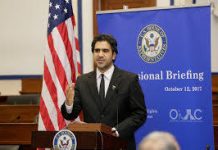شارل الياس شرتوني /سياسة الكراسي الموسيقية ومناورات الفاشية الشيعية
The Politics of Musical Chairs and Shiite Fascism Gambits
Charles Elias Chartouni/June 02/2022
Lebanese keep running after the illusion of an impending solution that fails to come about at every turn of their awkward political life. After a relative but important political change succeeding late elections, they find themselves confronted with the difficulties of engineering a coalition to counter the deadlocks set by Hezbollah.The risks of a fractured opposition plays fully into Hezbollah’s hands and perpetuates the impasses of the last sixteen years, at a time when the country is unraveling in every respect, and incremental entropies may yield an inevitable death.The kaleidoscopic opposition has no other chance but to unite around a consensual political program based on the restoration of sovereignty and structural governance reforms .
Two and a half years of deliberate stonewalling and sabotaging of reforms are not incidental facts, they are intentional policies which aim to break Statehood below the thresholds of sustainability, and make sure that Lebanon is made pliable to Iranian power politics, and transforms into a platform for subversion and international economic criminality. The stalemated Vienna negotiations were the litmus test of Iran’s intentions, and the War in Ukraine unveiled the competing agendas and their vectors, all along the geopolitical spectrum extending between Afghanistan and Turkey. Iran is zeroing in on its destabilization policy throughout the Middle East, doubling down on domestic repression, enhancing its nuclear thresholds, and relaying the Russians and Chinese in their endeavors to challenge the Liberal geopolitical order created by the US after WWII.
Turkey’s jockeying and insidious games are resurfacing after a short interlude of dormancy, propelled by deferred imperial agendas, thwarted Middle Eastern ambitions, and contained political inroads in the EU. In such a context of political volatility, unhinged political and religious deliriums, Lebanon finds itself on the crossroads between internal decay and destructive power politics. The constitutional mandates revolving around elections, the election of the speaker of the assembly and his deputy, the formation of a viable cabinet and the presidential rotation are, unfortunately, under the mercy of power asymmetries, the brittleness of institutional life, and the state of political fragmentation which puts at stake the democratic framing of politics and its normative and constitutional standards.
The slim majority has to split the vote between the Parliament’s speaker and his deputy and make sure to undermine his ability to mastermind the parliament. its successful bid at the parliamentary level should strengthen its leverage, while negotiating the formation of a new cabinet, trying to preempt a tentative and extended void, and perpetuate the state of political subservience featured by the current cabinet and its predecessors. Otherwise, the fight for an independent presidency is essential, if we are to win the battle over the Iranian annexation of Lebanon and its countervailing dynamics. Lebanon has no chances recovering its sovereignty and reforming its governance, unless Shiites decide to normalize their political choices, adjust to the realities of a pluralistic democracy, and engage others in the search for consensual solutions to cataclysmic crises. Otherwise, the rest of us should search for alternative solutions.




















